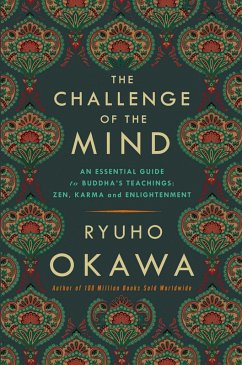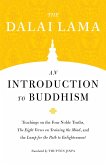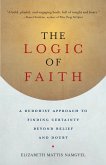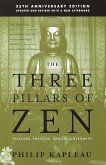The Challenge of the Mind is an excellent guide to exploring the infinite potential of our mind from Buddha's perspective. In this book, author Ryuho Okawa shows how we can apply the essential teachings of Buddha to our lives and cultivate deep wisdom and promote a happy, peaceful everyday life.
Through expounding such principles as the laws of cause and effect, egolessness, and the middle way, in simple, clear, but thoughtprovoking language, Okawa imbues a new life into the traditional Buddhist teachings, and offers a solid basis of reason and intellectual understanding to oftenovercomplicated teachings.
Chapter 1 focuses on the topic of the law of cause of effect, which essentially says that the seeds we sow and grow will determine the kind of life we will lead. In Chapter 2, Okawa shows how we can develop our Buddhanature, or a divine nature, so we can cultivate our potential for living fully at the highest level and at the same time achieve harmony with others in society. Chapter 3 discusses the essence of meditation. Okawa shows how we can receive light and guidance from heaven and use it as a source of power to spread goodness in this world. Chapter 4 is about achieving transcendental wisdom, which is a state of enlightenment that lets us see ourselves and the world from a broad perspective with a selfless heart. In Chapter 5, Okawa expounds on the teaching of egolessness, which leads us to experiencing oneness with Buddha and lets us discover the strong power of enlightenment that dissolves all worldly sufferings, pains, and attachments. Chapter 6 focuses on the teaching of the middle way. It shows how we should avoid extremes and discover our true nature as children of Buddha. In Chapter 7, Okawa discusses that, although spiritual experiences are vital to acquiring a higher state of mind, spiritual power alone does not lead us to the attainment of enlightenment. Chapter 8 defines karma as the tendencies of our mind and heart. Karma, whether individual or collective, is formed by the choices we make and the actions we take. To improve our karma and create a brighter future, it is vital that we share the spiritual truths with as many people as possible and pursue our spiritual growth in the way that benefits others.
Enlightenment is not just an abstract idea but is a state of mind that we can achieve as long as we continue our endeavor to seek higher awareness earnestly and honestly. By applying these fundamental principles to our lives, we can direct our minds to higher ideals and carve out a path to a bright future.
Through expounding such principles as the laws of cause and effect, egolessness, and the middle way, in simple, clear, but thoughtprovoking language, Okawa imbues a new life into the traditional Buddhist teachings, and offers a solid basis of reason and intellectual understanding to oftenovercomplicated teachings.
Chapter 1 focuses on the topic of the law of cause of effect, which essentially says that the seeds we sow and grow will determine the kind of life we will lead. In Chapter 2, Okawa shows how we can develop our Buddhanature, or a divine nature, so we can cultivate our potential for living fully at the highest level and at the same time achieve harmony with others in society. Chapter 3 discusses the essence of meditation. Okawa shows how we can receive light and guidance from heaven and use it as a source of power to spread goodness in this world. Chapter 4 is about achieving transcendental wisdom, which is a state of enlightenment that lets us see ourselves and the world from a broad perspective with a selfless heart. In Chapter 5, Okawa expounds on the teaching of egolessness, which leads us to experiencing oneness with Buddha and lets us discover the strong power of enlightenment that dissolves all worldly sufferings, pains, and attachments. Chapter 6 focuses on the teaching of the middle way. It shows how we should avoid extremes and discover our true nature as children of Buddha. In Chapter 7, Okawa discusses that, although spiritual experiences are vital to acquiring a higher state of mind, spiritual power alone does not lead us to the attainment of enlightenment. Chapter 8 defines karma as the tendencies of our mind and heart. Karma, whether individual or collective, is formed by the choices we make and the actions we take. To improve our karma and create a brighter future, it is vital that we share the spiritual truths with as many people as possible and pursue our spiritual growth in the way that benefits others.
Enlightenment is not just an abstract idea but is a state of mind that we can achieve as long as we continue our endeavor to seek higher awareness earnestly and honestly. By applying these fundamental principles to our lives, we can direct our minds to higher ideals and carve out a path to a bright future.
Dieser Download kann aus rechtlichen Gründen nur mit Rechnungsadresse in A, B, BG, CY, CZ, D, DK, EW, E, FIN, F, GR, HR, H, IRL, I, LT, L, LR, M, NL, PL, P, R, S, SLO, SK ausgeliefert werden.









